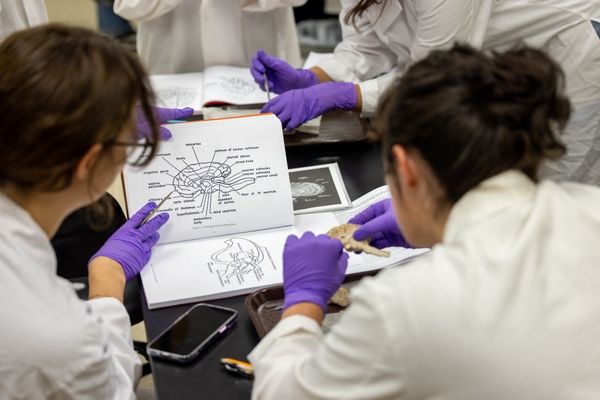UR Researchers Make Breakthroughs in Brain Research

The University of Rochester's Center for Brain Research (CBR) has played a pivotal role in advancing the field of neuroscience over the past six decades. The center, established in the 1950s, brought together researchers from Psychology and other departments to explore higher-level cognitive processes.
One of the pioneers in this effort was Dr. Carol Kellogg, who served as a faculty member at the University during the 1970s and 1980s. Under her leadership, students like Sean Ianchulev, who credits his academic and medical trajectory to the neuroscience program, grew into respected figures in their fields.
Today, Dr. Renee Miller, director of the undergraduate neuroscience program, is building on this legacy, offering courses that combine theoretical foundations with hands-on experience in real-world applications. Her new course, Acquired Brain Disorders, allows students to interact with medical center faculty and physicians, gaining valuable insights into complex neurological conditions.
Meanwhile, the university's Department of Brain and Cognitive Sciences has continued to evolve, driven by researchers like Dr. Gregory DeAngelis, who serves as chair until 2019. Under his leadership, the department has shifted its curriculum to incorporate more holistic approaches, connecting neuroscience principles to broader social and health issues.
The success of these efforts is a testament to the university's commitment to fostering a unique educational environment. By combining medical center research with cutting-edge education, students are equipped with a solid foundation for pursuing careers in medicine, research, or other fields that value interdisciplinary knowledge.
Throughout the journey, faculty members like Drs. Ernie and Kathy Nordeen have been instrumental in mentoring students and cultivating a culture of teaching within the program. Their dedication has helped shape the undergraduate neuroscience program into a thriving entity that embodies the university's innovative spirit.
As Duje Tadin, interim Dean of the School of Arts & Sciences, notes: "The success of the undergraduate neuroscience program is a shining example of coordinating our medical and educational mission, providing students with a unique training experience."
